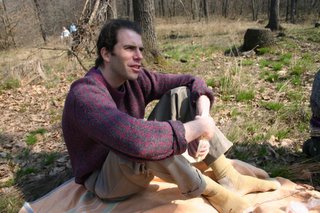International Panel on Climate Change comes to Budapest

By Jacob Doyle
Climate change has been a hot topic in recent years, growing hotter with the 2007 Nobel Peace Prize going jointly to former US president Al Gore for his cautionary film, An Inconvenient Truth, and to the Intergovernmental Panel on Climate Change (IPCC), a child of the UN, for their efforts to publicize and investigate the foreboding subject. The Energy Source was in attendance at Budapest’s Central European University (CEU) this past Thursday and Friday as IPCC scientists along with local academics, corporate dons and government officials talked up the subject for the general public at an outreach event while the official 28th session of the IPCC met across the river at the Congress Center. The upshot of some 18 hours of presentations and panel discussions was expected: we have corrupted the very climate that governs life on Earth. Less expected was the scale of pessimism that emerged: the problem worsens by the day and despite experts’ efforts to prescribe urgently needed remedies, things are likely to get much worse before they have a chance of getting better. As the climate changes, so change ecosystems, meaning vast disturbance not simply to the creatures of the land and sea, but to agriculture and human economy.
“For the sake of our future generations,” said Professor Ralph Sims of the International Energy Agency, “we need to make more rapid progress in reducing green house gas (GHG) emissions than has been the case to date.”
A steady rise in GHG emissions in Hungary over the last three decades was the presentation topic of Dr. Laszlo Haszpra of the Hungarian Meteorological Service (HMS). Haszpra explained that so far approximately half of global GHG emissions have remained in the atmosphere while the oceans and surface soil and plant life have absorbed the other half. “But we are quickly reaching a limit,” he warned, “soil will become saturated and emit more CO2 than plants can absorb.” At which moment, he explained, the Earth’s soil will cease to be a carbon sink and become a carbon source, joining forces with the industries, motor vehicles and animals than line its surface. His HMS colleague Dr. Janos Mika correlated the rise in emissions to ominous changes in leading climate change indicators: average temperature, temperature variability, tropospheric warming, diminishing snow cover and glacial and sea ice melting. Mika gave 90% of the credit for a 50-year trend of global warming to rising GHG emissions.
Professor Istvan Lang of the Hungarian Academy of Sciences described how such climate change could soon reverse seasonal rainfall patterns, thereby forcing radical change to crop production. The price and availability of food would likewise be affected.
No one at the conference suggested such radical alterations to human habits as swapping personal motorcars for bicycles, or a sweeping switch to a vegetarian diet; both of which would directly reduce GHG emission. Rather, technology-based solutions were emphasized. Economics and Transport Minister Csaba Kakosy talked up the need for nuclear power and a HUF 400m increase to Hungary’s renewable energy fund. Carbon capture and storage (CCS) – or pumping COx gases underground - was advocated both by Professor Sims and economist Dr. Laszlo Varo of MOL, both of whom kept their optimism well guarded.
It was comments by Dr. Varo, however, that revealed the most about how the looming climate crisis came in to being and why it will be difficult to resolve.
“Until we get this into the income value at the bottom of the page,” said Varo in regard to proposed climate change solutions, “don’t expect corporations to do much.”


